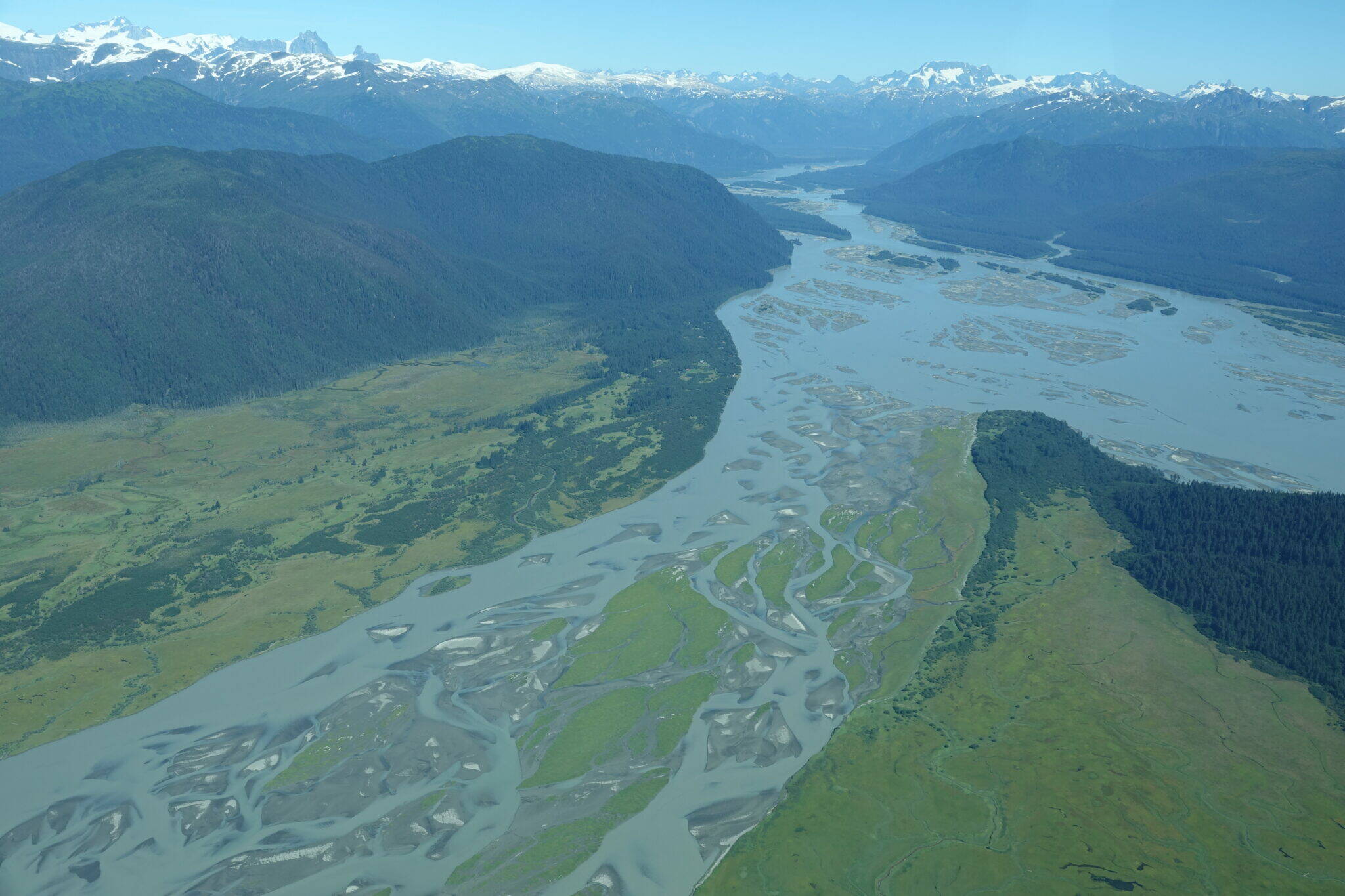Two years ago this fall, I testified at a Wrangell Borough Assembly meeting in support of yet another resolution calling on the U.S. federal government to be firm with British Columbia and Canada in protecting the Stikine River, as well as the Taku and Unuk rivers. These transboundary rivers, the lifeblood of Southeast Alaska, are threatened by the more than 30 B.C. gold mines in some phase of development just over the border. Over a dozen of them are located within the Stikine-Iskut watershed.
As I looked around the Assembly chambers, I realized that most people in Wrangell, whether they know it or not, are tied to the bounty of the Stikine. Whether they’re commercial fishermen or part of the visitor industry, whether they arrived last year, or whether their ancestors arrived thousands of years ago — the richness and bounty of the Stikine is intricately tied to the culture and economic health of our region, and to each of us. The Stikine River is an ecological and economic powerhouse, providing vital habitat for all five species of wild Pacific salmon and pumping out nutrients and minerals that fuel the wetland and marine ecosystems downstream, supporting everything from forage fish to migratory birds and marine mammals across the region.
If the Stikine was devastated by the cumulative toxic effects of multiple operating B.C. mines, or by a sudden, catastrophic mine waste dam breach at the operating Red Chris mine at the Iskut headwaters — or at the proposed Galore Creek gold mine on the lower Stikine — the effects to Wrangell, and the rest of Southeast Alaska, would be profound and long lasting. It would likely take us many decades to even understand the impacts.
It’s easy for people here to not be alarmed by the mining boom over the border, as we sit nestled in the shadow of huge mountains separating us from the mining activity upriver. The open pits, roads, warehouses and waste piles are out of sight and out of mind. And everything is fine until it’s not — until a catastrophic event you can’t undo, like the Mount Polley mine disaster, which devastated B.C.’s Fraser watershed nine years ago this month.
But many of us here in Wrangell have been tracking the recent B.C. mining boom closely for almost ten years. Despite the fact that thousands of us Alaskans, as well as Tribes, Alaska state legislators, and the Alaska congressional delegation, have called on the U.S. federal government to secure binding protections for these international rivers — including, unanimously, the Wrangell Assembly in fall 2021 — B.C. continues to push through new exploratory and operating mines without our meaningful input downstream.
In addition to the operating Red Chris mine, almost all of the salmon habitat and wetlands along the Iskut River, the main tributary for the Stikine, is staked with mineral claims. The current owners of the Red Chris – Newmont and Imperial Metals, also owner of Mount Polley mine – plan to double the size of that mine waste dam facility. Incredibly, this expansion doesn’t trigger the need for new permits under B.C. law. B.C.’s own experts predict that two mine waste dams will fail every 10 years in the province.
Downstream, we still need binding watershed protections developed by communities and Indigenous peoples on both sides of the U.S.-Canada border for the Stikine and other transboundary wild salmon rivers. Tribes and communities in Alaska are calling for a permanent ban on mine waste dams and for a temporary pause on new B.C. mining activity in Alaska-B.C. transboundary rivers until binding watershed protections are in place. The clock is ticking and the fate of our shared wild salmon and glacial rivers hangs in the balance. Will the Alaska congressional delegation keep pushing the U.S. federal government to stand up for Alaskans, hold Canada accountable, and finally get us a seat at the table?
• Brenda Schwartz-Yeager is a marine artist, Wrangell resident, and Stikine River business owner and boat captain. This article originally appeared online at alaskabeacon.com. Alaska Beacon, an affiliate of States Newsroom, is an independent, nonpartisan news organization focused on connecting Alaskans to their state government.

